|
I’m not much of a poetry person. I did what I could to avoid it in middle and high school, as well as college. But there is one poem that I like—in fact, that I love. It goes like this: “Hope” is the thing with feathers - That perches in the soul - And sings the tune without the words - And never stops - at all - And sweetest - in the Gale - is heard - And sore must be the storm - That could abash the little Bird That kept so many warm - I’ve heard it in the chillest land - And on the strangest Sea - Yet - never - in Extremity, It asked a crumb - of me. That is “Hope is the Thing with Feathers” by Emily Dickenson. I always liked the poem, the way it rhymes and the way it rolls off the tongue. It became even more important to me when my father became ill. I clung to this poem because it reminded me that hope is always with us; that even in the greatest storm, hope remains and remains without ceasing. As Christians, we cling to hope. This season of Lent which we find ourselves in right now is a period that prepares and leads us to that ultimate instance of hope in the Christian life: the Resurrection. Much like the hope that Dickenson writes of in her poem, the hope of the Resurrection remains with us at all times. It never stops, it remains with us in our souls, and it is, if I may create a word, “unabashable.” The thing is, it can be hard to see this hope in our lives, regardless of its unceasing presence. Pope Francis dedicates two paragraphs of Fratelli Tutti to the virtue of hope. He writes: Hope speaks to us of a thirst, an aspiration, a longing for a life of fulfillment, a desire to achieve great things, things that fill our heart and lift our spirit to lofty realities like truth, goodness and beauty, justice and love… Hope is bold; it can look beyond personal convenience, the petty securities and compensations which limit our horizon, and it can open us up to grand ideals that make life more beautiful and worthwhile” (Fratelli Tutti, 55). Hope transcends our ups and our downs, our individual trials and tribulations, not because they are insignificant, but because the Resurrection, in the end, is greater than every one of those. The hope of the Resurrection doesn’t minimize our trials, or even our personal convenience and petty securities, but it is the light which illuminates the darkness and allows us to move past them on our journey with Christ. The hope of the Resurrection, the hope of Christ perches in our soul and it sings the tune of Alleluia (pardon my use during Lent) without ceasing. This hope, much like the little bird that Dickenson describes, is in fact sweetest in the gale, in the storm, because we are called to recall that Jesus Christ will provide for us in ways that no other person or thing ever can. In the midst of Lent, much like through all of our sufferings, hope can be heard as a melodious tune above the groans of those trials which we face. May we look to hope, the thing with feathers, the Resurrection, this Lent and always. For more resources to accompany you during your Lenten journey, please click here. **This blog was originally published on March 16, 2021.**
0 Comments
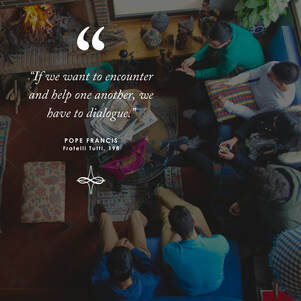 As with the Christian concept of love or charity, dialogue in a Christian context is focused on the other rather than oneself. As Pope Francis notes in number 198 of his Encyclical Fratelli Tutti, dialogue is a way of coming to know the other: “If we want to encounter and help one another, we have to dialogue.” To truly “encounter and help one another,” we need to deepen our presence more profoundly to the other through dialogue. Careful, patient, attentive, and compassionate listening to both the other person and to the Holy Spirit are needed. Bishop Séamus Freeman, S.A.C., who did much to further the Pallottine charism, would speak of this type of listening as a “trialogue” of each person involved and God. St. Vincent Pallotti understood this well when he focused great attention on the Upper Room or the Cenacle as the place of this type of listening, encounter, and discernment. It is worth our asking a few questions to review the quality of our trialogue. How am I engaging in trialogue? Am I simply having a dialogue, with no reference to God in the conversation? Is my dialogue focused on convincing the other of my point of view? Am I am offering my true thought and feeling to the other person or telling them what they want to hear? How open am I to deeper conversion of my understanding to one that is more aligned with what God is asking of me and the other person? There are no quick and easy answers to these questions. They require reflection in the context of prayer on experiences of dialogue and trialogue that we have. They also require openness to the Holy Spirit and a willingness to cooperate with the grace given by Christ. As we practice trialogue, we begin to see and experience the other person not as “other” but as another in the communal “journeying together” (Cf., Preparatory Document for the 16th Ordinary General Assembly of the Synod of Bishops, 11). May the Charity of Christ urge us on!
Faith is a gift. The ability to practice that faith, to worship freely, to share our faith in the public square, is also a gift. Each year, the Church in the US observes Religious Freedom Week. This year, we focus on Solidarity in Freedom. In Fratelli Tutti, Pope Francis writes, “Solidarity means much more than engaging in sporadic acts of generosity. It means thinking and acting in terms of community” (Fratelli Tutti, 116). The theme of Solidarity in Freedom forces us out into a global mindset, to one of community and fraternity. I’d like to focus on Religious Freedom Week through the stories of two men 400 years apart, Safa Al Alqoshy and St. John Southworth. At the 2018 Synod on Young People, the Faith, and Vocational Discernment, Safa Al Alqoshy, the only youth delegate from Iraq to the Synod, shared the story of the struggle of Iraqi Christians. While I didn’t meet Safa in my time at the 2018 Synod, I was around him during the 2019 Post-Synod Forum in Rome on Christus Vivit. His stories from the Synod followed him back to Rome where he was met with great admiration. Even though he had to arrive at the Forum late, the community that formed with him was immediate. Safa said to Crux, “It’s very important to pay attention that there is not only persecution by killing, there is a persecution by psychology, by feelings. You feel that you are alone, that you are not supported” (Crux). Safa expressed the reality of friends and family fleeing from Iraq, likely not to be seen again. He wasn’t just speaking generally about the people of Iraq, but from his own personal experience. He shared about two of his friends who were killed in a car bombing in 2009 and how Safa and his friends shared the common experience of saying, “see you next week” only to never see one another again. The temptation can be to take Safa’s story, and the story of so many Christians like him across the world, and to use it for our own advantage. To share it as an example, but one devoid of the personal reality which courses through its proverbial veins. When we share Safa’s story as just another example of the terrible persecution that Christians face, even worse as a “look what could happen to us next” story in relation to religious freedom in the US, we fail to show solidarity. We dehumanize those who have died, those who have been separated by the flight for freedom and safety, and we turn our suffering brothers and sisters into objects whose story we use for our perceived gain. No, instead, Pope Francis urges us to be in true solidarity with Safa and his friends and family, to think and act in community. We must pray for them, we must give when we can give, but we cannot use them as pawns in a game of politics that is antithetical to true solidarity. About 400 years before Safa there lived an English priest by the name of John Southworth. John was born around 1592 and was ordained in 1618 at the English College, Douai in France. St. John was arrested and imprisoned multiple times throughout his life, all for being a Catholic priest. Between his imprisonments, St. John would serve the plague victims of Westminster and provide sacraments to the sick and dying. St. John was arrested for the final time in 1654 and was sentenced to be hung, drawn, and quartered. His body was returned to France in 1655 and buried after having been, literally, put back together. During the war between the English and French in 1793, St. John’s body was buried in an unmarked grave where it remained until 1927 when the grave was discovered. He was canonized in 1970 by Pope St. Paul VI. John’s story is one of perseverance and solidarity. He was arrested multiple times and, eventually, killed for his Catholic faith. All throughout that time, he remained in solidarity with the English people, serving them through the sacraments, refusing to allow his own persecution to stand in the way of his Gospel mandate to be Christ to the world around him. Religious Freedom Week invites us to be, like St. John, fervent in our faith. It reminds us that, even in times of persecution, we carry on in sharing the Gospel. The week also invites us to remember those in our days who are persecuted, such as Safa and our brothers and sisters in Iraq. Solidarity means that we are united with them in prayerful community, but never using them for our own means- detaching their story from their persons. May we pray for all persecuted Christians and reflect upon the meaning of religious freedom this week with the hope of growing in solidarity with our brothers and sisters across our Universal Church.
I’m not much of a poetry person. I did what I could to avoid it in middle and high school, as well as college. But there is one poem that I like—in fact, that I love. It goes like this:
“Hope” is the thing with feathers -
That perches in the soul - And sings the tune without the words - And never stops - at all - And sweetest - in the Gale - is heard - And sore must be the storm - That could abash the little Bird That kept so many warm - I’ve heard it in the chillest land - And on the strangest Sea - Yet - never - in Extremity, It asked a crumb - of me.
That is “Hope is the Thing with Feathers” by Emily Dickenson. I always liked the poem, the way it rhymes and the way it rolls off the tongue. It became even more important to me when my father became ill. I clung to this poem because it reminded me that hope is always with us; that even in the greatest storm, hope remains and remains without ceasing.
As Christians, we cling to hope. This season of Lent which we find ourselves in right now is a period that prepares and leads us to that ultimate instance of hope in the Christian life: the Resurrection. Much like the hope that Dickenson writes of in her poem, the hope of the Resurrection remains with us at all times. It never stops, it remains with us in our souls, and it is, if I may create a word, “unabashable.” The thing is, it can be hard to see this hope in our lives, regardless of its unceasing presence. Pope Francis dedicates two paragraphs of Fratelli Tutti to the virtue of hope. He writes: Hope speaks to us of a thirst, an aspiration, a longing for a life of fulfillment, a desire to achieve great things, things that fill our heart and lift our spirit to lofty realities like truth, goodness and beauty, justice and love… Hope is bold; it can look beyond personal convenience, the petty securities and compensations which limit our horizon, and it can open us up to grand ideals that make life more beautiful and worthwhile” (Fratelli Tutti, 55). Hope transcends our ups and our downs, our individual trials and tribulations, not because they are insignificant, but because the Resurrection, in the end, is greater than every one of those. The hope of the Resurrection doesn’t minimize our trials, or even our personal convenience and petty securities, but it is the light which illuminates the darkness and allows us to move past them on our journey with Christ. The hope of the Resurrection, the hope of Christ perches in our soul and it sings the tune of Alleluia (pardon my use during Lent) without ceasing. This hope, much like the little bird that Dickenson describes, is in fact sweetest in the gale, in the storm, because we are called to recall that Jesus Christ will provide for us in ways that no other person or thing ever can. In the midst of Lent, much like through all of our sufferings, hope can be heard as a melodious tune above the groans of those trials which we face. May we look to hope, the thing with feathers, the Resurrection, this Lent and always. For more resources to accompany you during your Lenten journey, please click here.
“If we are truly animated by the spirit of love, we shall always treat all with love, look on all with love, think of all with love and speak of all with love.” – St. Vincent Pallotti What does it mean to be “animated by the spirit of love?” Jesus said to his disciples that his commandment is “love one another as I love you” (John 15:12). If we believe ourselves followers of Christ, then we must follow this commandment. St. Vincent Pallotti, whose feast day is today, gives us how we do that – treat, look, think, and speak of ALL with love. That is where the challenge is – to do it for all. Pallotti understood that our love, seen as charity, is universal. Pope Francis reminds us in his Encyclical, Fratelli Tutti: “People can develop certain habits that might appear as moral values: fortitude, sobriety, hard work and similar virtues. Yet if the acts of the various moral virtues are to be rightly directly, one needs to take into account the extent to which they foster openness and union with others. That is made possible by the charity that God infuses. Without charity, we may perhaps possess only apparent virtues, incapable of sustaining life in common” (91). Civil and ecclesial unrest, including revolution, as well as pandemic were common things in the Rome of St. Vincent Pallotti’s day in the first half of the nineteenth century. Yet, it did not stop him from recognizing the call of all believers in Christ to go forth as his apostles and witness God’s infinite love to a world that so desperately needed to experience it. Today is no different. We are called to do the same. May the charity of Christ urge us on!
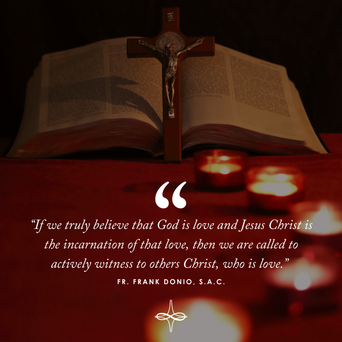 Advent is a time of active waiting. That might seem rather strange and even contradictory. Some see Advent as a passive period, a time of waiting for Christmas to come. Advent is hardly a time for passivity. The first half of Advent is focused on the coming of Jesus Christ at the end of time and our active waiting for that. What type of activity? We are called to co-responsibility in the mission of Christ and his Church to bring about the Kingdom of God. This Kingdom is not about power and control, but about love, particularly “social love,” a term used by St. John Paul II in his first Encyclical Letter, Redemptor Hominis (15). It is a type of love that transforms the world to Christ. Pope Francis in his new Encyclical Letter, Fratelli Tutti, teaches that “‘Social love’ makes it possible to advance toward a civilization of love, to which all of us can feel called.” (183). If we truly believe that God is love and Jesus Christ is the incarnation of that love, then we are called to actively witness to others Christ who is love (1 John 4:7-21). This love can transform our world and help to bring about the Kingdom of God while we wait for Christ to come again at the end time. May we enter Advent as a time of active waiting lived in love. May the Charity of Christ urge us on!
11/19/2020 Fratelli Tutti: On Fraternity and Social Friendship - Top Quotes from Pope Francis' Latest EncyclicalRead NowOn the vigil of the Feast of St. Francis of Assisi, the saint who influenced the choosing of Pope Francis’s papal name, Pope Francis released the encyclical Fratelli Tutti on fraternity and social friendship. Beginning with the example of St. Francis himself and continuing with the parable of the Good Samaritan, Pope Francis calls the world once again to consider the common good and to strive for unity based on fraternal charity. In doing so, he reminds humanity of an important truth: that we belong to one another. In this blog series, I’ll be sharing some of my favorite quotes from the pope’s latest encyclical. May they bring you peace, hope, and joy as we continue to grow and adapt in the midst of the COVID-19 pandemic and its effects on our world. “Let us dream, then, as a single human family, as fellow travelers sharing the same flesh, as children of the same earth which is our common home, each of us bringing the richness of his or her beliefs and convictions, each of us with his or her own voice, brothers and sisters all” (FT, 8) Today I believe that many of us have forgotten to dream. We are mired down with anxiety, isolation, pandemic fatigue, stress, financial and political uncertainty, or disillusionment. In Fratelli Tutti, Pope Francis reminds us to dream and to hope. There is room for each person at God’s table. Each person brings their own gifts, talents, knowledge, expertise, experiences, and self to the world. Rather than reject our differences, it is important to acknowledge and even celebrate the richness in our human diversity. We are many parts, but one body. Let us celebrate our humanity and practice dreaming once again—of unity, of peace, of justice, of truth, of love. “Instances of racism continue to shame us, for they show that our supposed social progress is not as real or definitive as we think” (FT, 20). As several incidents within the United States have reminded our nation once more, racism is a sin which directly contradicts the truth that all people are born with equal dignity in the image and likeness of God. The sin of racism continues to be present in our world, and eliminating it involves the intentional work and learning of each person. This process includes listening to other’s stories and journeys, learning about and from history, conducting a personal examination of conscience, and intentional action to change systems and structures of racism. Pope Francis reminds us that racism is intolerable, not only among Catholics, but among mankind as a whole. “True, a worldwide tragedy like the Covid-19 pandemic momentarily revived the sense that we are a global community, all in the same boat, where one person’s problems are the problems of all. Once more we realized that no one is saved alone; we can only be saved together” (FT, 32) Although the COVID-19 pandemic has wrought havoc on the way we live, times of hardship also remind us of what’s important. Often, we re-focus on our priorities because we are reminded not to take them for granted. Many turn to faith, family, and community and are more likely to help those who are less fortunate. Practicing gratitude is an essential component of not only surviving but thriving in times of hardship. Pope Francis points out that tragedies such as COVID-19 can bring humanity together in a common bond of fraternity. Let us turn outward during this time and use our talents and resources to bring joy, love, and hope to others. “We have the space we need for co-responsibility in creating and putting into place new processes and changes. Let us take an active part in renewing and supporting our troubled societies. Today we have a great opportunity to express our innate sense of fraternity, to be Good Samaritans who bear the pain of other people’s troubles rather than fomenting greater hatred and resentment” (FT, 77) Co-responsibility is an important theme at the Catholic Apostolate Center that has been given even greater attention in the Church today. It involves collaboration from the beginning and values the important contributions each person brings to the Church and world. St. Vincent Pallotti, patron of the Catholic Apostolate Center, understood that the Church cannot thrive and spread the Gospel without the active participation of the clergy, religious, and laity. Today, Pope Francis reminds us that we all have a role to play in the renewal of the Church and world. This begins when we can accompany our brothers and sisters, stand in solidarity with those who are hurting, and bring them the joy of the Gospel. “Solidarity finds concrete expression in service, which can take a variety of forms in an effort to care for others” (FT, 115) Charity comes alive in works, just as St. Paul says, “faith without works is dead.” The Gospel is lived today through our actions—an understanding promoted in Catholic Social Teaching and exemplified through the corporal and spiritual works of mercy. It is one thing to express solidarity with our brothers and sisters, but a very different thing to walk alongside and serve them. Pope Francis is calling us to both. As we are reminded in Gaudium et Spes, “Man…cannot fully find himself except through a sincere gift of himself” (24). “Nor can we fail to mention that seeking and pursuing the good of others and of the entire human family also implies helping individuals and societies to mature in the moral values that foster integral human development...Even more, it suggests a striving for excellence and what is best for others, their growth in maturity and health, the cultivation of values and not simply material wellbeing. A similar expression exists in Latin: benevolentia. This is an attitude that ‘wills the good’ of others; it bespeaks a yearning for goodness, an inclination towards all that is fine and excellent, a desire to fill the lives of others with what is beautiful, sublime and edifying” (FT, 112) In the Christian worldview, politics, economics, culture and society must be built and exist for the common good. They are man-made structures designed to serve this purpose. In pursuing the common good, we aim to create a society in which mankind can flourish as a result of respect for every person’s inherent dignity. As St. Thomas Aquinas stated, “Love wills the good of the other.” Pope Francis echoes this truth and reminds us that willing this good is comprehensive: we must care about one another’s spiritual well-being as well as our physical well-being. When man’s fundamental needs are met—when he is cherished, nurtured, respected, fed, and rested—he is better able to “fill the lives of others with what is beautiful, sublime and edifying.” He is able to reach out and better experience and rest in the divine. To learn more about Fratelli Tutti, please click here. On October 17th, the Catholic Apostolate Center celebrated its ninth anniversary of reviving faith, rekindling charity, and forming apostles in the spirit of St. Vincent Pallotti. The Founder of the Union of Catholic Apostolate, the Pallottine Family, gave these words of St. Paul as a motto, “the charity of Christ urges us on” (2 Cor. 5:14). Pope Francis writes in his new Encyclical Letter, Fratelli Tutti, about the nature of this charity: “Charity, with its impulse to universality, is capable of building a new world” (183). As Catholics, we do not reserve our charity simply to those we find acceptable. Our charity is universal, it is catholic, in the broader sense of the word. No one is exempt from offering it and we cannot exempt anyone from our charity. Nor should we reject the charity of another, if we understand charity to mean, as St. Thomas Aquinas did, ‘willing the good of the other.” Charity evangelizes us all. For St. Vincent Pallotti, the apostle, the one who is sent by Christ, never disconnects faith and charity. They are intimately connected to one another. Less than a week prior to the founding of the Catholic Apostolate Center in 2011, Pope Benedict XVI put it this way in Porta Fidei: “‘Caritas Christi urget nos’ (2 Cor 5:14): it is the love of Christ that fills our hearts and impels us to evangelize” (7). As we celebrate our ninth year, we are grateful for the opportunity to live these words. As a ministry of the Pallottine Fathers and Brothers of the Immaculate Conception Province, we continue to serve the Church and the world. On behalf of the Pallottines, thank you to all staff members, collaborators, advisors, collaborating organizations, benefactors, and everyone who uses and promotes our resources. There are many new ones to come. The Center team is in thanksgiving to the Holy Spirit for guiding us to this day and for aiding us in the future. May the Charity of Christ urge us on!
|
Details
Archives
July 2024
Categories
All
|
About |
Media |
© COPYRIGHT 2024 | ALL RIGHTS RESERVED


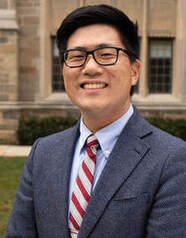
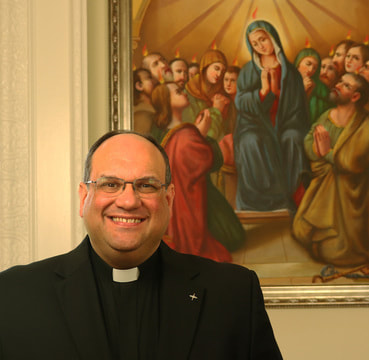
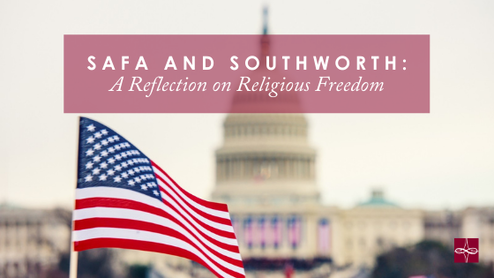
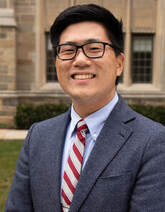
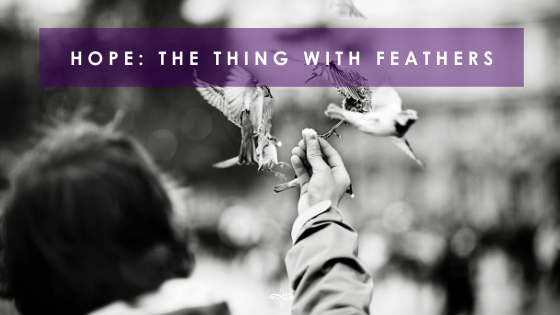
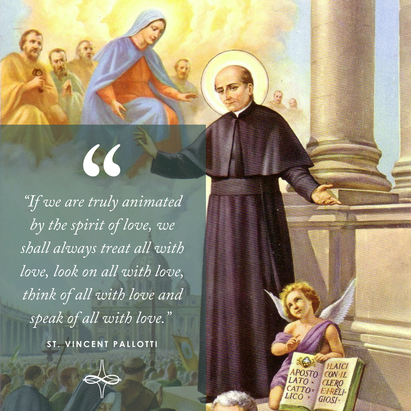
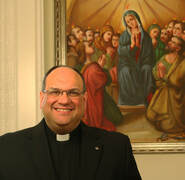
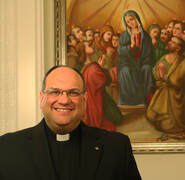
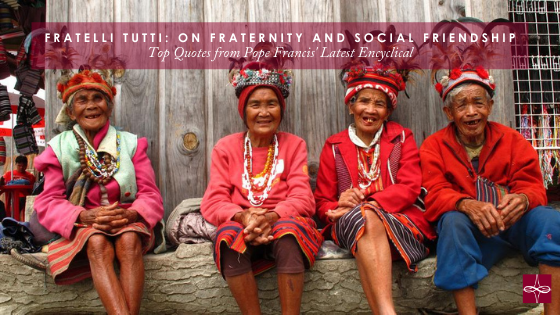

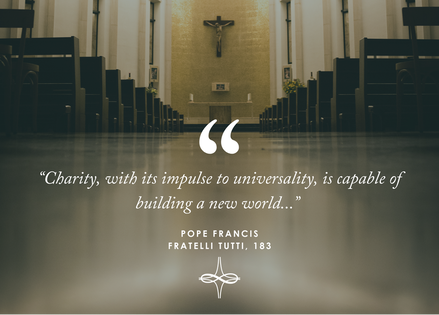
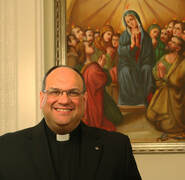
 RSS Feed
RSS Feed